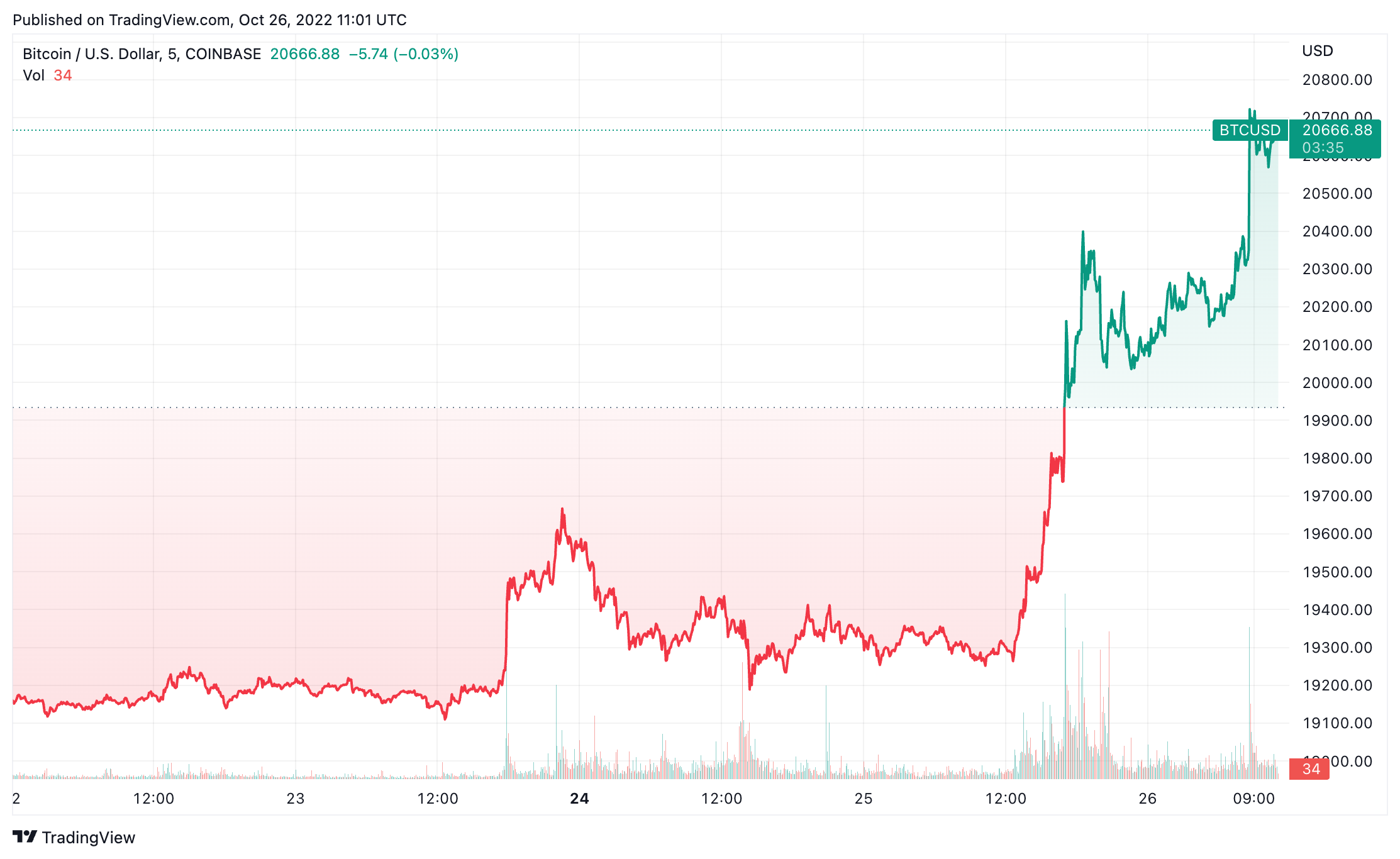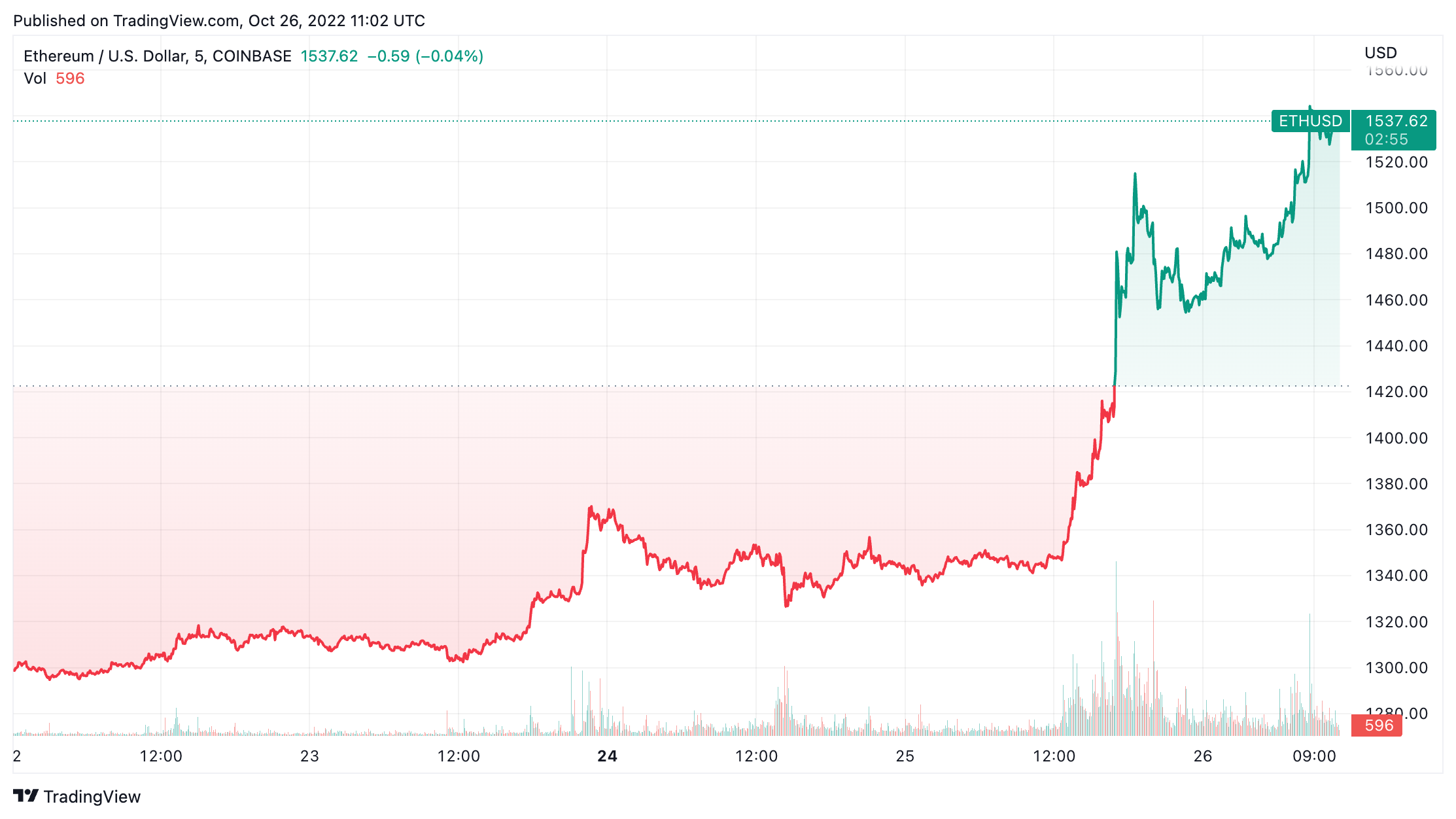Ethereum just completed The Merge. But in Washington, cryptocurrency could increasingly be headed for a political fork.
Traditional players in conservative politics are embracing cryptocurrency as a political issue — spending cash, commissioning polls, penning op-eds and lobbying for legislation. Now, with lawmakers and regulators looking more closely than ever at new rules for the burgeoning crypto industry, GOP-aligned groups are staking out positions in the debate.
The newfound enthusiasm for crypto from longtime players in conservative politics, who favor a laissez faire approach to digital asset regulation, comes as the industry faces skepticism from environmental groups, progressive politicians and others on the political left. But Democratic lawmakers with a more positive view of digital assets, as well as some industry insiders, want to keep digital asset policy a bipartisan issue, in order to prevent the same entrenchment that bogs down other policy debates.
“It’s natural for Republicans, particularly the free-market conservatives to support bitcoin, and cryptocurrency fits right in our wheelhouse,” said David McIntosh, president of the Club for Growth, an influential conservative group that advocates for cutting taxes and reducing federal spending.
The Club launched a crypto-focused super political action committee that can spend and raise unlimited funds on behalf of candidates this campaign cycle. Unlike other crypto-linked PACs that have cropped up recently, the group’s fund, Crypto Freedom PAC, is among the first launched by an establishment political group rather than a cryptocurrency mogul or crypto-native industry association.
The Club for Growth is a major force in Republican politics. The GOP-aligned organization is the third-highest conservative spender in the midterm elections, according to OpenSecrets, a nonprofit that tracks campaign finance. Crypto Freedom PAC, which the Club plans to rebrand to Bitcoin Freedom PAC, has spent $4.4 million on midterm races since it launched in June, according to Federal Election Commission filings.
The PAC is backing Rep. Ted Budd, R-N.C., who is running for Senate against Democrat Cheri Beasley, and Arizona Senate hopeful Blake Masters, the GOP challenger to the Democratic incumbent, Sen. Mark Kelly. The group also supports congressional candidate Bo Hines in North Carolina, a 27-year-old Republican who studied crypto at Wake Forest School of Law. Crypto Freedom PAC spent more than a quarter of a million dollars in a New York congressional primary to support Michelle Bond, the CEO of the Association for Digital Asset Markets, a crypto industry group. Bond ultimately lost.
Like other conservatives who are active on digital assets, McIntosh said last year’s inclusion of a tax change related to crypto in the bipartisan infrastructure law drew him into the issue. Lawmakers included a provision in the bill that expanded the definition of a broker for cryptocurrency network participants.
“The pivot to say we’ve got to take a position and get organized was when they put the provision in the infrastructure bill that authorized the IRS to treat cryptocurrency differently than you would other investments. And we realized, okay, government is not going to leave this market alone. We need to prepare to be an advocate for freedom,” McIntosh said.
The same was true for Americans for Tax Reform, an advocacy group that often weighs in on cryptocurrency issues. The group opposes all new taxes and was founded by Grover Norquist, a conservative activist focused on cutting federal and state taxes.. The crypto industry is in line with Norquist’s libertarian idea for a “Leave Us Alone Coalition,” federal affairs manager Bryan Bashur said.
“Every time there’s a new business that pops up, the government wants to find a way to regulate it or tax it. And I think that the crypto industry fits perfectly into this libertarian-conservative movement of ‘leave us alone’ — you know, to get the government out of the way,” Bashur said.
Also getting in on the action, conservative advocacy group FreedomWorks for America will host a cryptocurrency conference with industry representatives at its Washington headquarters this week.
Even as the right stakes out its turf on digital assets, crypto-friendly Democrats say the issue doesn’t split neatly on party lines, and are wary of policy around the technology becoming the newest partisan issue.
“I’d like to keep this issue pre-partisan. I don’t think it’s not an issue that falls neatly into our existing partisan divides,” said Rep. Jake Auchincloss, D-Mass., the vice-chair of the House Financial Services Committee.
Rep. Eric Swalwell, D-Calif., sees the sector as “an opportunity for bipartisan leadership,” he told The Block. Swalwell and Auchincloss are both members of the bipartisan Congressional Blockchain Caucus.
They’re hardly alone. Senate Agriculture Committee Chair Debbie Stabenow, D-Mich., and her Republican counterpart, Sen. John Boozman, R-Ark., worked together on legislation to grant the Commodity Futures Trading Commission more influence over bitcoin and ether markets. Reps. Patrick McHenry, R-N.C., and Maxine Waters, D-Calif., collaborated on legislation to create a comprehensive policy framework for stablecoins, though negotiations have stalled, with McHenry blaming the Biden administration while praising Waters for her engagement. A broader overhaul of crypto regulations, authored by Sens. Cynthia Lummis, R-Wyo., and Kirsten Gillibrand, D-N.Y., grabbed headlines earlier this year.
New policy areas can cut past old partisan lines. But Auchincloss warned that if bipartisan progress doesn’t occur soon, the window for crypto remaining a cross-party issue might close.
“Then it’ll bend towards a partisan issue,” said the Massachusetts Democrat. “So I do think it’s important to pass bipartisan crypto legislation to prevent this from becoming overly and unnecessarily partisan.”
McIntosh, the president of the Club for Growth, agrees with that sentiment — despite his group’s push to support GOP candidates. McIntosh said he has reached out to Democratic groups that are pro-crypto.
“The ideal is that it would stay bipartisan,” McIntosh said.
© 2022 The Block Crypto, Inc. All Rights Reserved. This article is provided for informational purposes only. It is not offered or intended to be used as legal, tax, investment, financial, or other advice.
Go to Source
Author: Stephanie Murray



